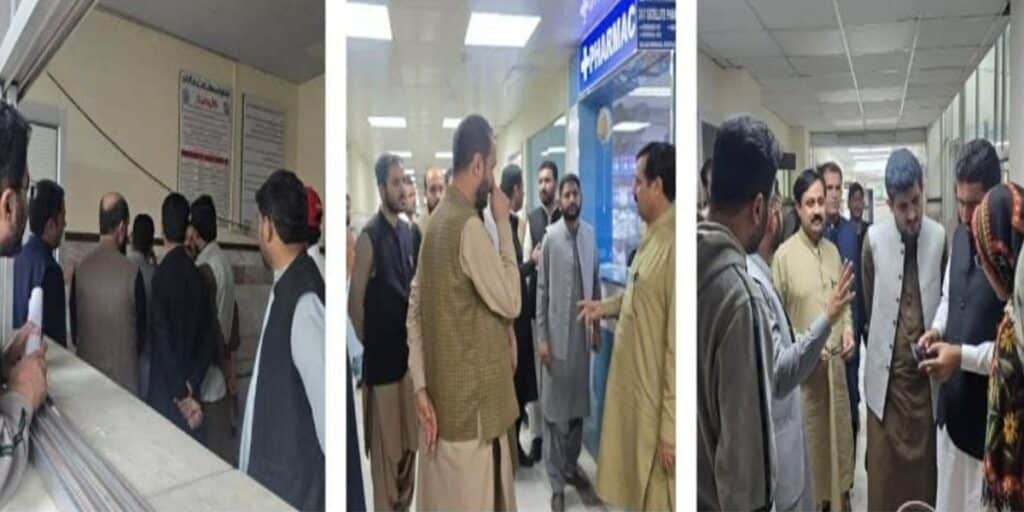Quetta—Chairman of the Balochistan Health Task Force and Special Secretary of Health, Shehak Baloch, along with Deputy Secretary of Health Khalil Murad, paid a late-night visit to Bolan Medical Complex Hospital accompanied by the task force team.
The Balochistan news updates suggest, Medical Superintendent Dr. Sultan Ahmed Lehri guided them through various wards and departments, providing a briefing on the benefits of the hospital’s 24/7 satellite pharmacies.
He explained that the presence of pharmacists on every floor ensures the uninterrupted supply of medicines to patients at all hours.
During the inspection, the team reviewed duty rosters of patients’ care staff, including doctors, nurses, and other employees.
Emergency services, the radiology unit, and laboratory facilities were all declared fully operational.
The task force also received a detailed briefing on the hospital’s cleanliness standards, security arrangements, and the key challenges it currently faces.
Bolan Medical Complex (BMC) is one of Balochistan’s largest tertiary-care hospitals, providing critical health services to Quetta and surrounding districts.
In recent months, provincial authorities have intensified surprise inspections to assess hospital performance, staffing, and patient care standards.
The late-night visit by the Health Task Force underscores the government’s ongoing efforts to improve public healthcare delivery, ensure the availability of medicines, and address challenges such as cleanliness, security, and efficient round-the-clock operations.
Over the past three years the health sector of Balochistan has seen noticeable growth in funding, facilities, and management reforms.
The provincial government consistently raised its annual health budget, setting aside billions of rupees both for day-to-day operations and for new development projects.
Balochistan News Updates
This financing allowed the up-gradation of hospitals, the activation of many previously non-functional basic health units in remote areas, and the establishment of specialized services such as trauma centres, burn units, intensive care facilities, and a new cancer hospital in Quetta.
Alongside construction and equipment upgrades, the Health Department introduced digital systems for real-time reporting and better medicine supply management, while monitoring teams carried out province-wide inspections of hospitals and rural health centres.
Public-private partnerships and new laws were adopted to improve governance, and a provincial health card initiative began to expand access to free treatment.
ALSO READ: DC warns absent health staff of strict action in Gwadar
Despite these advances, significant challenges remain, including thousands of unfilled doctor and nurse positions, low vaccination coverage, and difficulty maintaining services in distant districts.





